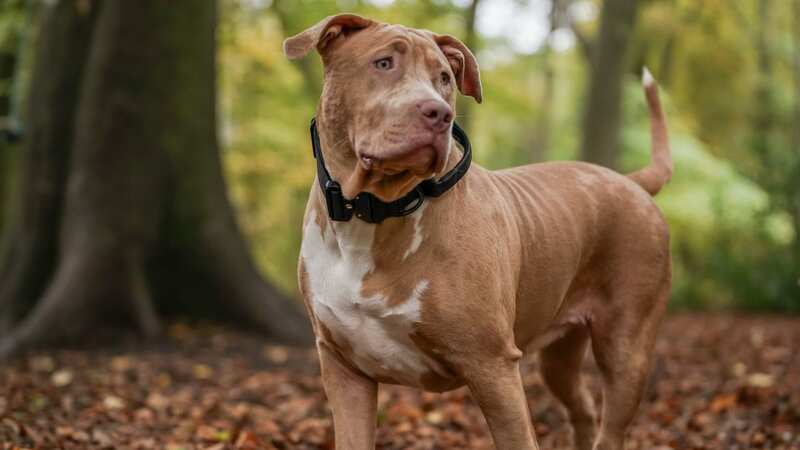American Bully XLs used as 'weapons' and 'protection' by 'criminal underworld'
Criminals use American Bully XL dogs as “weapons” and “protection” against rivals, MPs were told today.
Rishi Sunak last month promised to ban the breed after it was linked to a spate of fatal attacks that shocked the country. However, the proposed ban has already seen yobs switch to other types of dogs, a parliamentary committee was warned.
Vets also told of the practical difficulties in neutering tens of thousands of XLs - a measure due to be introduced when they are outlawed. Explaining why some people wanted such dogs, David Martin, group animal welfare adviser at Britain’s biggest corporate vets’ firm IVC Evidensia, told the Commons Environment, Food and Rural Affairs Select Committee: “The wider criminal underworld want to use these as status dogs, who want an aggressive-looking dog - often with their ears cropped - as a protection dog, as a ‘you don’t want to mess with me because I’ve got this great big lump on the end of a lead’. It maybe an aggressive dog or it may just look like an aggressive dog, but you don’t want to tackle it.”
He said such owners considered their dogs “weapons” but believed they were less likely to “bother” police - and dismissed claims the breed is used for fights. “The organised dog fighting community is still using pit bulls,” he said. “That is what the dog fighting fraternity wants to fight.”
But he feared a ban on XLs would backfire. “If we ban one breed the people who want status dogs will just go and get a different breed and we will be having the same discussions with a different breed,” said Dr Martin. "There is some evidence already that is happening.”
 Teachers, civil servants and train drivers walk out in biggest strike in decade
Teachers, civil servants and train drivers walk out in biggest strike in decade
Chief Veterinary officer Christine Middlemiss has confirmed existing XLs would not have to be culled but would need to be registered, leashed and muzzled in public, and neutered. Dr Martin feared neutering all XLs would pile huge pressure on vets. “Some of those dogs will not have been used to coming to the vet, some of those dogs may have behavioural issues and we will have to manage those dogs in our practices,” he said.
The move would be “time consuming” and more expensive for owners because “we will probably have to use more sedatives” before their operations, he said. Neutering “very large” dogs was more difficult because few surgeries had big cages to house them while they recovered, he added. Warning the procedure was “not simple”, he said: “The thought of neutering a 50kg (7st 8lb) female XL Bully is not one that will fill many vets with joy.”
He estimated there were at least 50,000 XLs in the UK out of about 12 million dogs. However, MPs heard there could be up to 140,000. If they all needed to be “neutered in a short period of time, that is going to be a hell of a job for the veterinary profession”, added Dr Martin.
RSPCA head of companion animals Dr Samantha Gaines warned against a ban. "I don’t think the evidence being used for this is sound,” she said. “What we don’t want to see is further, breed-specific legislation being added to the current framework. We absolutely agree that urgent action is required; we do not dismiss that whatsoever. But we do not think that adding another breed ban to the current Dangerous Dogs Act is going to be effective at protecting public safety or at dog welfare.”
She said evidence for a ban was “lacking in depth, in authority, in objectivity and also in quality”, adding: “We are hugely concerned.” Instead, she called for “reform and consolidation of the various different pieces of legislation that relate to dog control”. “It’s really complex and also difficult for enforcers to recognise which piece of legislation should be used in particular incidents,” she said.
“The other issue we have around dangerous dogs legislation is it tends to be very reactive. What we want to see is a much more preventative approach which allows for early intervention because ultimately we share the deep concern of the public and everyone else about the number of serious incidents and fatalities that we’ve seen of late.”
She insisted “no breed is inherently aggressive and there are no breeds of dogs that are any more likely to show aggression than any other”. But she admitted: “Obviously we have to acknowledge that large, powerful dogs will cause serious injuries, but that’s not the same as saying that a dog that is large and powerful and muscley will absolutely bite somebody. When we look at the data, we see that breed alone is a poor and unreliable indicator of the risk of aggressive behaviour.”
She said among American Bully XLs “absolutely there will be some of those dogs that will, for a focus on genetics and lifetime experiences, pose significant risks because of their behaviour”. But she claimed: “Within that group of dogs there will also be dogs that are very friendly and do not pose risk.”
Dr Gaines said there were “always going to be certain parts of society that wants a dog that looks a particular way”, pointing to XLs with cropped ears so it “looks intimidating and looks frightening”. Suggesting alternatives to a breed ban, she called for an “immediate crackdown on illegal breeding of these types of dogs and also existing provisions being used where dogs’ behaviour is shown to be out of control”.
The Mirror is campaigning for an overhaul of the 1991 Dangerous Dogs Act.
 Richard 'shuts up' GMB guest who says Hancock 'deserved' being called 'd***head'
Richard 'shuts up' GMB guest who says Hancock 'deserved' being called 'd***head'
Read more similar news:
Comments:
comments powered by Disqus


































